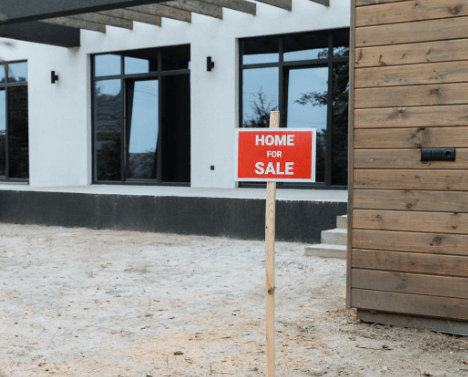Navigating the decision to sell a parent’s home is an emotional and complex process, often requiring careful legal and financial planning. With a significant portion of home sales involving seniors, many families seek ways to manage these assets proactively to avoid future complications. The process of selling parents’ house before death in Punta Gorda, Florida, involves understanding critical tools like a durable power of attorney, life estates, and joint ownership, each with its own set of Florida-specific rules. It also brings up important tax considerations, such as capital gains and the Medicaid look-back period, which can impact the outcome significantly. Steve Daria and Joleigh, renowned real estate investors and cash home buyers, offer a simple and direct solution. They specialize in quick, as-is purchases, making the task of selling parents’ house before death in Punta Gorda, Florida, much less stressful. This approach allows families to bypass lengthy repairs and the uncertainties of a traditional market. If you need guidance on the best path forward for your family’s property, book a free discussion with Steve Daria and Joleigh today.
Key Points
- Legal Authority is Essential: Before listing the property, you must have the legal right to sell it on your parents’ behalf. This is typically established through a durable power of attorney (POA), but other options like joint tenancy with rights of survivorship or a life estate may also apply, depending on how the title is held.
- Understand Tax Implications: Selling before death may trigger capital gains taxes for your parents, whereas inheriting the property provides a “step-up in basis,” often reducing or eliminating this tax. Gifting the property or selling it below market value can also create gift tax issues and affect the cost basis for the new owner.
- Consider Medicaid Look-Back Period: If your parent may need Medicaid within the next five years, selling the house for less than fair market value could result in a penalty period where they are ineligible for benefits. Florida’s Medicaid rules are strict, so any transaction must be handled carefully to avoid jeopardizing future care options.
- Gather All Necessary Documents: A smooth sale requires organizing key paperwork, including the property deed, mortgage statements, property tax records, and the legal document granting you authority to sell. Conducting a preliminary title search is also prudent to identify any liens or issues that could delay closing.
- Explore Fast, As-Is Sale Options: Traditional sales can be slow and require costly repairs, making them difficult for families to manage. Selling to a cash home buyer like Steve Daria and Joleigh offers a simple and fast alternative, as they purchase properties in their current condition, streamlining the entire process for you.
What does selling a parent’s house “before death” mean?
Selling a parent’s house “before death” means completing the sale of their property while they are still alive, rather than handling it as part of an estate after they have passed away.
This process is typically managed by an adult child who has been granted legal authority through a durable power of attorney.
Families often choose this path to help a parent downsize, to fund long-term care needs, or to simplify the future estate by avoiding the probate process.

However, the financial implications are very different from inheriting a property, as the sale may trigger capital gains taxes for your parent without the benefit of a “step-up in basis.”
The process of selling parents’ house before death in Punta Gorda, Florida, also requires careful attention to Florida’s five-year Medicaid look-back period to avoid penalties.
Before proceeding, it is crucial to verify the property’s title to check for joint owners or life estate clauses that affect the sale.
All legal documents must be in perfect order to ensure the transaction is valid and smooth.
For those seeking a simpler path, speaking with elder law attorneys or professional cash buyers can provide clarity and guidance.
Get An Offer Today, Sell In A Matter Of Days
What are the first steps to take when considering this process in Punta Gorda, Florida?
The first steps for selling a parent’s house in Punta Gorda begin with a frank family discussion to ensure everyone’s goals are aligned and to review your parent’s wishes.
Next, you must confirm you have the legal right to act, which typically requires a durable power of attorney that specifically grants powers for real estate transactions.
Once authority is verified, gather all essential documents, including the property deed, mortgage statements, HOA rules, and recent tax bills.
It is also wise to have a preliminary title search done to identify any liens, joint owners, or life estate clauses that could complicate the sale.
To avoid financial penalties, it’s crucial to understand the basics of capital gains tax and the rules of Florida’s five-year Medicaid look-back period.
The process of selling parents’ house before death in Punta Gorda, Florida, also involves assessing the home’s condition to decide between making repairs or pursuing an as-is sale.
Researching your options, from a traditional listing to a fast cash sale, will help you set a realistic timeline.
Consulting with local professionals, such as elder law attorneys or experienced cash buyers, can provide much-needed clarity on the best path forward for your situation.
How do capital gains taxes work when selling a parent’s home in Punta Gorda, Florida?
- Understanding Capital Gains Tax: Selling an asset for profit (like a house) means the government taxes a part of that profit, known as capital gains tax. This profit is calculated by subtracting the home’s cost basis (purchase price plus improvements) from the sale price.
- The Primary Residence Exclusion: If your parent lived in the home primarily for at least two of the last five years, much of the profit may be tax-exempt. Single owners can exclude $250,000, and married couples filing jointly can exclude $500,000.
- Calculating the Cost Basis: The cost basis includes the original purchase price and the cost of major improvements to the property, like a new roof or kitchen remodel. A higher cost basis reduces the taxable profit, so keeping good records of these expenses is important.
- Selling Before Death vs. Inheriting: Selling before death may lead to capital gains tax for your parent, while inheriting offers a “step-up in basis.” This resets the cost basis to the home’s market value at the time of death, which often significantly reduces or even eliminates the tax bill for heirs.
- Long-Term vs. Short-Term Gains: The tax rate depends on how long your parent owned the home; assets held over a year get a lower long-term rate. Keep records and consult a tax expert for accurate filing.

Should we make repairs before selling my parents’ house?
Deciding whether to make repairs before selling a parent’s house depends on your family’s goals, budget, and timeline.
Making simple updates like painting or landscaping can improve curb appeal and increase the sale price on the traditional market.
However, this route requires upfront cash, time to manage contractors, and the risk of unexpected delays.
For many families, especially those managing the process from a distance or needing funds quickly for care, this is not a practical option.
The alternative is selling the property “as-is,” which trades a potentially lower price for speed and certainty.
The process of selling parents’ house before death in Punta Gorda, Florida, becomes much simpler without the burden of renovations.
A good strategy is to get estimates for necessary repairs and then request a no-obligation cash offer to compare your net profit from both scenarios.
This data-driven approach helps you see which path truly benefits your family the most.
Consulting with local real estate agents or reputable cash buyers can provide a clear picture of both options.
How do we determine a fair price for an “as-is” sale in Punta Gorda, Florida?
- Start with Recent Local Sales: Begin by researching sold homes (known as “comparables” or comps) in your Punta Gorda neighborhood, focusing on those similar in size and layout. Adjust their sale prices downward to reflect your house’s “as-is” condition, as the sold listings were likely improved or maintained.
- Estimate Repair Costs: Next, determine what repairs or updates the house needs by walking it with a trusted contractor. Subtract the estimated cost of roofs, major systems, and basic fixes from the after-repair value to find your as-is price, ensuring you have a realistic picture of market value.
- Factor in Holding Costs: Each month your property stays on the market, it costs money for property taxes, insurance, utility bills, and possible HOA fees. A fair as-is offer accounts for these ongoing expenses, since a cash buyer takes on these financial responsibilities immediately at closing.
- Account for Buyer’s Risk: As-is buyers understand they’ll deal with any surprises later, so their offers reflect this extra uncertainty. The discount for buyer risk provides sellers with more speed and certainty during the sale.
- Get Multiple Offers and Compare: Ask for prices from both a traditional agent and reputable cash buyers. Use a “net sheet” to clearly compare commissions, repair costs, and bottom-line profit for the best choice.
How are the sale proceeds handled at closing?
At closing, the sale proceeds are managed by a neutral third party, like a title company or closing attorney, to ensure a secure transaction.
They first use the buyer’s funds held in escrow to pay off any existing mortgages, liens, or other debts tied to the property.
Next, they settle prorated expenses such as property taxes and HOA fees, along with standard closing costs.
The remaining amount, known as the net proceeds, is then disbursed directly to your parent as the seller.
When selling parents’ house before death in Punta Gorda, Florida, the person with power of attorney will manage the proceeds, usually through a wire transfer or certified check.
The title company will verify all identities and wiring instructions carefully to prevent fraud.
After closing, you will receive a final settlement statement detailing every deduction, which is a critical document to save for tax purposes.
To navigate this process with confidence, consider a free, no-obligation discussion with expert and seasoned real estate investors.
Steve Daria and Joleigh are trusted cash buyers who can simplify every step for you.
**NOTICE: Please note that the content presented in this post is intended solely for informational and educational purposes. It should not be construed as legal or financial advice or relied upon as a replacement for consultation with a qualified attorney or CPA. For specific guidance on legal or financial matters, readers are encouraged to seek professional assistance from an attorney, CPA, or other appropriate professional regarding the subject matter.

